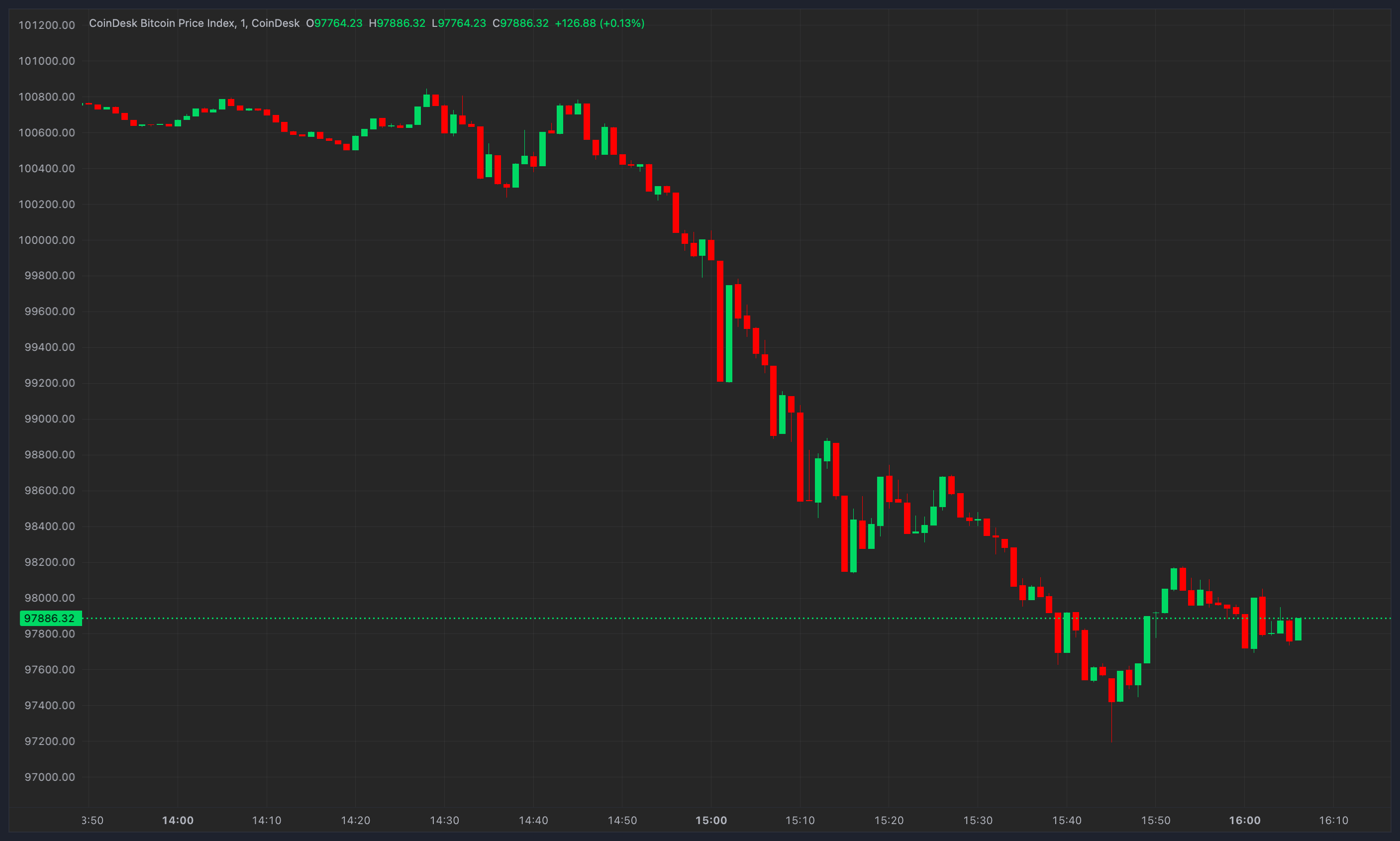
Tether co-founder Reeve Collins defended the company’s perceived lack of transparency, stating Tether has always redeemed every token for “exactly one dollar” despite having no clear proof of reserve.
Reeve Collins defends Tether (USDT) despite no proof of reserves
During a heated interview with CNBC’s Squawk Box today, Dec. 2, Tether co-founder Reeve Collins defended the company’s perceived lack of transparency, stating Tether, the leading stablecoin issuer, offers on its websites proofs of its reserves monthly, despite people questioning it.
Andrew Ross Sorkin from CNBC put Reeve Collins in the spotlight by reading published articles from the Wall Street Journal about the company’s lack of integrity even before the FTX fallout. On air he read:
“Tether…doesn’t publish audited financial statements or complete balance sheets living outsides with an incomplete picture of the company’s health.”
Sorkin also read Peter Crane, President of Crane data’s comment to Reeve Collins, which stated:
“I’ve been skeptical and in disbelief that they(Tether) can get away with the lack of disclosure with the limited transparency if you(Tether) do have reserves, why don’t you show them.”
In defence, Collins, who sold the company in 2015, argues that Tether has always redeemed every token for exactly one dollar. He also stated that the company has the best risk mitigation tactics in the industry and has withstood the test of time.
After mentioning that Tether publishes their monthy statements, Collins said people continually doubt these reports, but it is fine to question the company’s transparency.
Tether’s controversy
Although it seems Tether’s controversy has been heightened with the FTX debacle, Critics have been calling Tether out since last year, stating there were loopholes in their financial statements and a general lack of transparency from the company.
Tether is the dominant issuer of stablecoins, a type of cryptocurrency attached to a stable asset like the U.S. dollar. Unlike traditional cryptocurrencies such as Bitcoin and Ether, whose monetary value can fluctuate widely, stablecoins are typically designed to maintain a constant price of $1 and are backed by large reserves of funds or another financial engineering. This consistency allows crypto traders to conduct safe, predictable transactions without relying on banks or other financial gatekeepers.
However, after the failure of TerraUSD, a stablecoin with a $1 peg that was algorithmically linked to a sister cryptocurrency called Luna, earlier this year, the whole trust issue with stablecoins began dissipating as this failure spiralled a crash of other cryptocurrencies.
Tether, during this meltdown, assured that its stablecoins are backed by cash and other traditional assets, making its reserves essential to the health of the crypto market.
However, the company’s financial statements show that a significant portion of its reserves is tied up in unsecured corporate debt, known as commercial paper. Such financial instruments are riskier and harder to convert quickly into cash, especially during financial turmoil.
Critics say Tether is a sham, as it acts as a loosely regulated bank. Traders hand over millions of dollars to them to bet on more volatile cryptocurrencies such as Bitcoin or Dogecoin.
Tether’s lawsuits
In 2021, New York’s attorney general fined Tether $18.5 million and said the company had lied about its reserves, calling it “a stablecoin without stability.”
Last October, the CFTC filed and settled charges against Tether after accusing the company of lying about the backing of the flagship USDT stablecoin.
The largest stablecoin issuer is also the target of a $1.4 trillion class-action lawsuit, which accuses the company of perpetuating large-scale fraud.
Reeve Collins, however, promised that the industry would become more transparent due to the recent string of failures.
Read More: crypto.news








 Bitcoin
Bitcoin  Ethereum
Ethereum  Tether
Tether  XRP
XRP  Solana
Solana  Dogecoin
Dogecoin  USDC
USDC  Cardano
Cardano  Lido Staked Ether
Lido Staked Ether  TRON
TRON  Avalanche
Avalanche  Sui
Sui  Wrapped stETH
Wrapped stETH  Chainlink
Chainlink  Toncoin
Toncoin  Stellar
Stellar  Shiba Inu
Shiba Inu  Wrapped Bitcoin
Wrapped Bitcoin  Hedera
Hedera  Polkadot
Polkadot  WETH
WETH  Bitcoin Cash
Bitcoin Cash  LEO Token
LEO Token  Uniswap
Uniswap  Hyperliquid
Hyperliquid  Pepe
Pepe  Litecoin
Litecoin  Wrapped eETH
Wrapped eETH  NEAR Protocol
NEAR Protocol  Ethena USDe
Ethena USDe  USDS
USDS  Aptos
Aptos  Internet Computer
Internet Computer  Aave
Aave  Mantle
Mantle  Render
Render  Bittensor
Bittensor  Cronos
Cronos  POL (ex-MATIC)
POL (ex-MATIC)  Ethereum Classic
Ethereum Classic  Virtuals Protocol
Virtuals Protocol  WhiteBIT Coin
WhiteBIT Coin  Tokenize Xchange
Tokenize Xchange  MANTRA
MANTRA  Artificial Superintelligence Alliance
Artificial Superintelligence Alliance  Monero
Monero  Arbitrum
Arbitrum